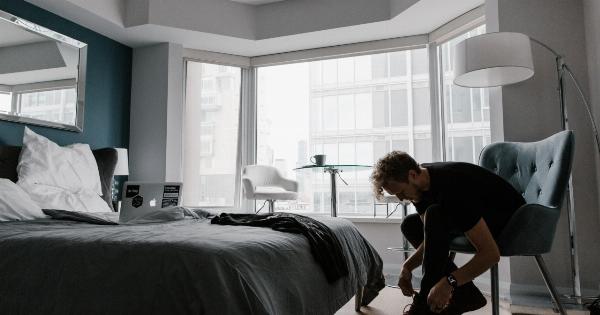Nocturia is a common condition characterized by the need to wake up during the night to urinate. It can significantly disrupt sleep and lead to inadequate rest, daytime fatigue, and diminished quality of life.
While it is more commonly associated with aging and certain medical conditions, nocturia can affect individuals of all ages. Fortunately, there are various strategies, lifestyle changes, and medical interventions that can help reduce or eliminate nocturia symptoms and improve sleep quality.
What Causes Nocturia?
There are several potential causes of nocturia, including:.
- Excessive fluid intake before bedtime
- High fluid intake during the day
- Bladder abnormalities, such as overactive bladder or bladder obstruction
- Urinary tract infections or other urinary tract disorders
- Reduced bladder capacity
- Prostate enlargement in men
- Hormonal imbalances
- Diabetes or uncontrolled blood sugar levels
- Certain medications, such as diuretics or medications that increase urine production
- Sleep disorders, such as sleep apnea
Strategies to Manage Nocturia
1. Limit Fluid Intake Before Bed:.
Reducing fluid intake a few hours before bedtime can help decrease the amount of urine produced during the night. It is important, however, to maintain adequate hydration throughout the day.
2. Manage Fluid Intake During the Day:.
Avoiding excessive fluid intake during the day, particularly in the evening, can prevent excessive nighttime urination. Be mindful of your overall fluid consumption and try to spread it out evenly throughout the day.
3. Bladder Training:.
Bladder training techniques, such as scheduled voiding, can help regulate urinary frequency and increase bladder capacity. Gradually increase the intervals between bathroom trips to encourage the bladder to hold urine for longer periods.
4. Avoiding Certain Substances:.
Some beverages and foods can act as diuretics, increasing urine production and exacerbating nocturia. Limit or avoid consuming caffeine, alcohol, and spicy or acidic foods, especially in the evening.
5. Elevate Your Legs:.
If leg swelling contributes to nocturia, elevating the legs during the day and before bedtime may help reduce fluid retention and relieve pressure on the bladder.
6. Manage Underlying Medical Conditions:.
If nocturia is a symptom of an underlying medical condition, such as diabetes or urinary tract infections, it is crucial to address and manage these conditions appropriately with the help of a healthcare professional.
7. Medication Review:.
Consult with your healthcare provider to review any medications you are taking, as some may contribute to nocturia. Adjustments or changes in medication can sometimes mitigate or alleviate symptoms.
8. Maintain a Regular Sleep Schedule:.
Establishing consistent sleep patterns can help regulate the body’s internal clock and improve sleep quality. A regular sleep schedule can also minimize nocturia disruptions and support overall sleep hygiene.
9. Manage Stress and Anxiety:.
High levels of stress and anxiety can aggravate nocturia symptoms. Engage in stress-reducing activities, such as relaxation techniques, meditation, or therapy, to help manage stress levels and improve sleep.
10. Seek Medical Intervention:.
If nocturia persists or significantly affects your well-being, consult with a healthcare professional for a thorough evaluation. They can help identify the underlying cause of your nocturia and recommend appropriate treatment options.
When to Consult a Healthcare Professional
It is important to seek medical advice if:.
- Nocturia symptoms persist for an extended period
- Nocturia significantly affects your quality of life and daily functioning
- Nocturia is accompanied by other concerning symptoms
Your healthcare provider can perform a comprehensive assessment, including medical history review, physical examination, and possibly additional tests, to determine the cause of your nocturia and develop an appropriate treatment plan.
Conclusion
Nocturia is a disruptive condition that can significantly impact sleep quality and overall well-being.
By implementing strategies such as managing fluid intake, practicing bladder training, and addressing underlying medical conditions, individuals can reduce or eliminate nocturia symptoms. It is essential to consult with a healthcare professional if symptoms persist or worsen, as they can provide personalized advice and recommend appropriate treatment options.
By effectively managing nocturia, individuals can improve their quality of sleep, enhance their daytime functioning, and regain control over their lives.






























